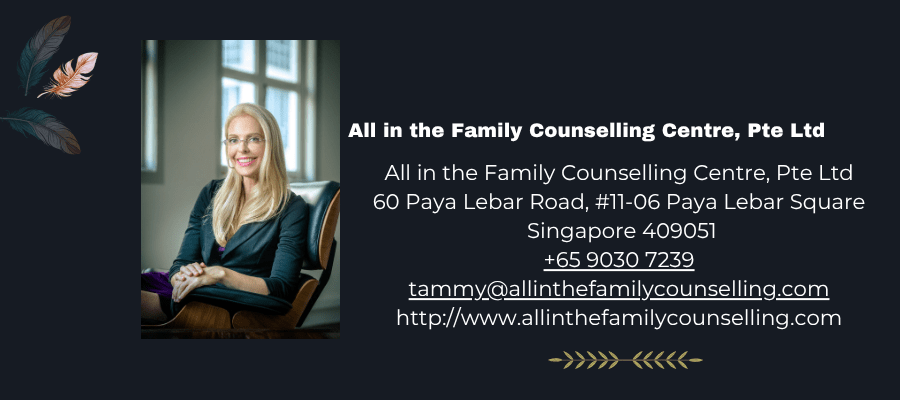Guest Post By: Tammy M. Fontana, MS NCC CTRT Clinical Sex Therapist
How to Resolve Communication Issues with Your Partner
As a therapist specializing in marriage counseling, I’ve seen how communication, seemingly straightforward at first glance, often becomes one of the most challenging aspects of maintaining a healthy relationship. Many couples I work with encounter various communication issues in marriage, from simple misunderstandings to more complex emotional barriers.
While these hurdles may appear manageable initially, they can quickly escalate into larger problems if not addressed professionally. In my practice, I’ve observed how unresolved communication issues can lead to significant rifts or even a complete communication breakdown in marriage. The good news is that with professional guidance, mastering effective and empathetic communication is achievable, even if you’re currently struggling with the question “how to fix communication issues in marriage.”
Understanding Communication Barriers
In my years of helping couples who desperately think “help me save my marriage,” I’ve found that recognizing and addressing communication barriers is vital in resolving conflicts and strengthening bonds. The reasons behind communication issues in marriage are multifaceted, with factors ranging from individual communication styles to external stresses. Through therapy, couples can work towards breaking down these walls and foster a more robust emotional connection.
Different Communication Styles
I frequently observe couples encountering difficulties when their communication styles clash. Each partner has their unique way of expressing thoughts and feelings, shaped by upbringing, personality, and past experiences. In our therapy sessions, we work together to understand and respect these differences.
Unresolved Past Conflicts
Through my clinical experience, I’ve seen how unresolved past conflicts, no matter how small, can quietly erode a relationship’s foundation. These lingering issues often cast shadows over current conversations, subtly distorting how partners see and respond to each other. Even minor misunderstandings, if not properly addressed in therapy, can accumulate into walls of resentment and mistrust.
The real challenge with these unresolved conflicts lies in their ability to magnify new problems. What begins as a simple miscommunication can escalate rapidly as old feelings and unresolved resentments surface. Suddenly, couples find themselves arguing not just about present issues but reliving past hurts. This cycle of carrying past issues into current discussions creates barriers to genuine, heartfelt communication, trapping partners in a loop of responding to both current and historical emotional wounds.
Stress and External Pressures
In my practice, I frequently see how external stressors can significantly impact marital communication. The demands of a high-pressure career, overwhelming family responsibilities, or persistent financial issues can create a heavy emotional burden that inevitably affects how couples interact. When individuals are wrestling with significant stress, I notice it manifests in their communication patterns – perhaps through increased irritability, emotional withdrawal, or difficulty maintaining the empathetic presence that once came naturally. This subtle yet profound shift can create an undercurrent of tension, making it challenging to maintain the supportive dynamic that previously strengthened their bond.
Fear of Vulnerability
As a therapist specializing in helping couples overcome communication issues in marriage, I’ve observed that the fear of vulnerability often lies at the core of communication barriers. Opening up about deep thoughts, feelings, and insecurities can feel incredibly daunting. Many couples I work with struggle with the fear of judgment, misunderstanding, or rejection. When you share your innermost feelings, you’re essentially trusting your partner with your emotional vulnerabilities, hoping they’ll handle this trust with care. This fear can be particularly intense if past experiences have led to pain or dismissal.
Through my experience in helping couples who wonder “how to fix communication issues in marriage,” I’ve seen how this fear of vulnerability often leads to superficial or guarded communication. Partners might withhold their true thoughts and emotions, creating a barrier to genuine emotional connection. Instead of expressing their authentic feelings, they might remain silent or say what they think their partner wants to hear. This pattern can create emotional distance and misunderstanding, as neither partner truly understands the other’s emotional experience.
Lack of Active Listening
In my therapy sessions, I emphasize that active listening goes beyond merely hearing words – it’s an engaged process of understanding, processing, and empathizing with your partner’s perspective. When couples come to me saying “help me save my marriage,” I often find that the absence of active listening has left one or both partners feeling unheard and invalidated. This can lead to feelings of loneliness within the relationship and create a communication gap where the emotional undertones of conversations are missed, resulting in a surface-level understanding of each other’s needs and concerns.
Assumptions and Expectations
Working with couples, I’ve noticed how unspoken assumptions and unrealistic expectations can create significant barriers to clear, honest communication. When partners hold onto preconceived notions or expect certain outcomes without expressing them, it sets the stage for misunderstandings and unfulfilled desires. These unexpressed expectations often lead to disappointment and frustration, even though they were never communicated in the first place.
Avoidance of Conflict
In my years of counseling couples, I’ve observed that avoiding conflicts might initially seem like a peaceful approach, but it’s actually detrimental to marital communication. When couples come to me asking “help me save my marriage,” I often find a pattern of sweeping issues under the rug, which inevitably leads to accumulated resentment and unresolved hurt.
Technological Interference
As a marriage therapist, I frequently witness how technology has become a significant barrier in modern relationships. When couples seek my guidance on how to fix communication issues in marriage, the intrusion of digital devices often emerges as a central concern. The constant presence of smartphones and social media can create a virtual wall between partners, disrupting meaningful conversations and emotional connection. I’ve seen countless cases where partial attention during interactions leads to misunderstandings and feelings of being undervalued.
Through my practice, I’ve noticed that the consequences of technological distractions extend far beyond simple communication issues in marriage. Partners often express feeling like they’re competing with screens for attention, leading to emotional disconnection and weakened bonds. This is a common theme I address in my therapy sessions, helping couples establish healthy boundaries with technology.
Cultural or Background Differences
In my experience working with diverse couples, I’ve found that cultural and background differences significantly influence communication patterns. These differences encompass various elements, from language nuances to deeply rooted cultural values, which can create unique challenges in marital communication. I help couples understand and bridge these differences through targeted therapeutic approaches.
Emotional Baggage
As a therapist, I frequently work with couples where past emotional experiences impact their current relationship dynamics. Whether it’s trauma from previous relationships or childhood experiences, this emotional baggage can create significant barriers to open communication. I’ve helped many couples recognize how past hurts manifest in their current communication patterns, often leading to defensive or withdrawn behavior.
Through our therapy sessions, I guide couples in understanding how emotional baggage can create invisible barriers in their relationship. This often manifests as misinterpretations of their partner’s actions or overreactions to certain situations. I work with couples to identify these patterns and develop healthier communication strategies.
Active Listening and Empathy
In my practice, I emphasize that active listening and empathy are crucial foundations for healthy marital communication. I teach couples that genuine listening involves more than just hearing words – it’s about fully engaging with their partner’s message, both verbal and emotional. Through therapeutic exercises, I help partners develop these essential skills, showing them how to maintain eye contact, offer meaningful acknowledgment, and ask clarifying questions that demonstrate genuine interest and understanding.
If you’re experiencing similar challenges in your marriage, I encourage you to reach out. Together, we can work on developing these crucial communication skills and strengthening your relationship.
In my therapy sessions, I emphasize that empathy takes active listening to a deeper level. When couples ask me “help me save my marriage,” I guide them in developing the ability to truly put themselves in their partner’s position and connect with their emotional experience. This emotional attunement creates a profound bond and builds trust, as partners feel genuinely seen and understood by each other.
Non-Verbal Communication
As a marriage counselor, I’ve observed that non-verbal communication plays a vital role in how couples convey and interpret messages. When addressing communication issues in marriage, I help partners recognize the power of body language, facial expressions, gestures, posture, and vocal tone. Through my experience, I’ve found that these non-verbal cues often tell a more accurate story than words alone. For instance, I help couples identify how crossed arms might signal defensiveness, while avoiding eye contact could indicate discomfort or withdrawal.
I work with couples to become more mindful of these signals—both in expressing themselves and interpreting their partner’s cues. This awareness allows for a more nuanced understanding of what’s being communicated, helping capture the complete message beyond spoken words. In our sessions, I show how paying attention to non-verbal cues demonstrates full presence and engagement, which significantly enhances emotional connection and intimacy.
Handling Sensitive Topics
When couples come to me seeking how to fix communication issues in marriage, handling sensitive topics is often a key concern. I guide them in developing a thoughtful approach to avoid unnecessary tension and conflict. Through therapy, we work on choosing appropriate times and settings for difficult conversations, preferably in private, relaxed environments where both partners feel safe and undistracted. I teach couples how maintaining a calm and respectful demeanor helps keep dialogue constructive. Together, we practice speaking clearly and honestly while remaining sensitive to how words may impact their partner. This therapeutic approach not only prevents escalation but creates a foundation where both partners feel heard and respected, even during challenging discussions.
The Power of 'I' Statements
In my practice, I’ve found that using ‘I’ statements is a transformative technique, especially when addressing conflicts or expressing difficult emotions. I teach couples to speak from their personal perspective rather than making accusatory statements. For example, I guide them to say, “I feel hurt when you don’t listen to me,” instead of “You never listen to me.”
Through our sessions, I demonstrate how ‘I’ statements allow partners to express feelings and needs without blame, reducing defensiveness and opening doors to more productive, empathetic communication. This method cultivates a respectful atmosphere where both partners can safely express themselves and work together toward resolution.
Recognizing When to Seek Help
As a therapist specializing in marriage counseling, I often emphasize that recognizing the right moment to seek professional help is crucial for preserving and strengthening your relationship. Through my experience working with couples facing communication issues in marriage, I’ve identified several key indicators that suggest it’s time to consider counseling. One common sign I observe is when couples find themselves trapped in repetitive arguments over the same issues, indicating an inability to effectively resolve underlying conflicts. Another significant warning sign that prompts couples to reach out saying “help me save my marriage” is when they notice a decline in both the quality and frequency of their communication—which, interestingly, ranks among the leading causes of divorce in Singapore.
In my practice, I’ve noticed that when conversations become infrequent, superficial, or consistently tense, it clearly signals that communication channels within the relationship are deteriorating. I help couples understand that feelings of emotional distance or disconnection often point to deeper relationship issues that need addressing. These might manifest as reduced intimacy, diminished empathy, or a growing sense of drifting apart. When partners feel unable to connect as they once did, I provide professional guidance to offer fresh perspectives and strategies for rebuilding their connection.
I’ve found that certain situations, particularly those involving complex issues like infidelity, trust violations, or deep-rooted resentment, especially benefit from professional intervention. In my counseling sessions, I create a neutral, safe environment where both partners can freely express their feelings and thoughts without fear of judgment. Together, we work on developing new communication skills and strategies for managing conflicts and emotional challenges within the relationship. I help couples understand that seeking therapy isn’t an admission of failure but rather a proactive step toward nurturing and strengthening their bond.
Approaches to Couples Counselling
In Singapore, I offer couples various effective counseling approaches to improve their communication and resolve relationship issues. The Gottman Method is one approach I frequently use, focusing on building love maps, fostering fondness and admiration, and encouraging partners to turn toward each other during challenging times. I’ve found this method particularly effective in helping couples understand each other’s needs, manage conflict constructively, and create shared meaning in their relationship.
Another valuable approach I utilize is helping people to deal with the big feelings they feel as discussing topics. All conversations are emotional. There is no way to avoid it so best to learn these skills of recognizing feelings vs facts, emotional regulation and learning how to validate your partner’s feeling while still maintain your identity and truths.
In my practice, I’ve found that couple counseling sessions can address a wide range of critical relationship aspects, particularly how to fix communication issues in marriage. These therapeutic conversations create a supportive environment where partners can work through their communication issues in marriage together. My approach focuses on enhancing mutual understanding and developing practical problem-solving strategies, which are essential for fostering healthier relationship dynamics. For couples struggling with intimate concerns, including sexual difficulties, I provide a safe, non-judgmental space to explore these sensitive issues, helping rebuild trust and emotional connections.
Through my experience in Singapore, I’ve seen how counseling offers couples valuable tools to better understand each other and strengthen their relationships. When partners come to me saying “help me save my marriage,” I work with them to develop effective communication strategies and address their specific challenges, ultimately working toward a more fulfilling partnership.
However, I also acknowledge that sometimes, even with strong communication skills, relationships may reach an impasse. In Singapore, couples considering divorce are typically required to undergo mandatory counseling first. As a therapist, I ensure this process thoroughly explores all possibilities for reconciliation and helps both individuals fully understand the implications of separation.
Overall Goals
- Focuses on building and maintaining strong relationship foundations, deepening mutual understanding, and developing effective conflict management skills.
- Aims to identify relationship strengths and areas for growth while providing couples with practical tools for lasting relationship success.
- Addresses various objectives from resolving specific issues to improving communication and rebuilding trust after relationship challenges.
Navigating Together: Strengthening Communication in Your Relationship
Effective communication forms the foundation of every healthy relationship. Through these proven strategies and approaches, I can help you enhance your communication skills and strengthen your relationship dynamics.
Taking the first step towards improving your marriage through enhanced communication can transform your relationship. Whether through self-help strategies or professional counseling with me, I’ll guide you towards building a stronger, more empathetic, and deeply connected partnership.






